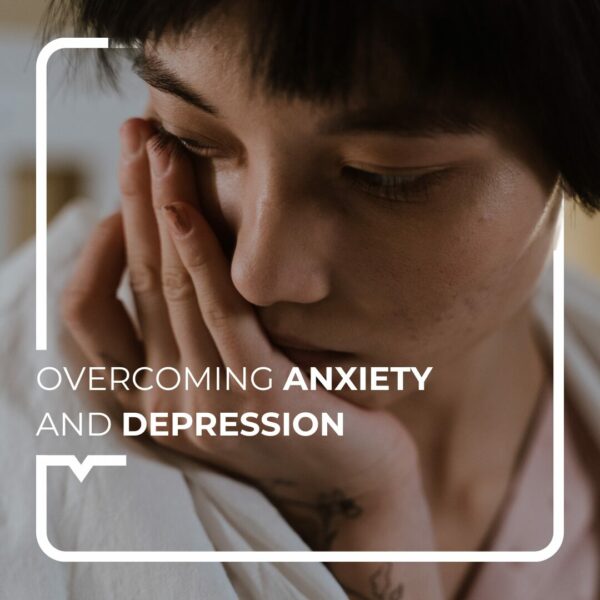Olá, this is Dr Joy,
Imagine yourself in a busy room, where laughter and conversation are rife. Yet instead of feeling at ease, you’re overwhelmed by a we’ve of emotions, a heightened sensitivity to every sound, every smile. You are not alone.
Many people live with hypersensitivity, or high sensitivity, often without understanding the causes or consequences.
Today, let’s dive into the fascinating world of hypersensitivity, its impact on daily life and how to make it a strength rather than a burden.
Vamos!
I – What is hypersensitivity?
Hypersensitivity is characterised by a different way in which the brain functions within the nervous system. It manifests itself as a heightened intensity in the perception of emotions and sensory stimuli. While all human beings experience a certain degree of sensitivity, some people experience things in a much more profound way, both emotionally and sensorially. A hypersensitive individual may, for example, be strongly affected by sounds, lights, smells, tastes or touches, but also by the emotions of others, feeling them as if they were their own. This ability to feel intensely can be both a gift and a burden, as it can lead to emotional overload and increased fatigue.
Although it can sometimes lead to challenges such as increased anxiety or misunderstanding from those around them, hypersensitivity is not a disorder or illness, but rather a character trait. People with hypersensitivity may also possess great creativity and deep empathy, which enriches their life experience. Accepting this hypersensitivity and learning techniques to support it can transform what may seem like a handicap into a real superpower.
II – The different types
This increased sensitivity to environmental stimuli can manifest itself in various ways:
- Sensory hypersensitivity
This type of hypersensitivity is characterised by extreme reactivity to sensory stimuli. Hypersensitives may experience intense sensations when confronted with elements such as :
- Touch (disturbing materials): A simple touch may be perceived as unpleasant, causing discomfort.
- Smells: Certain fragrances, even in small quantities, can become overpowering or unpleasant.
- Noise: Hypersensitives may have an increased intolerance to certain sounds, which can make them vulnerable to noisy environments.
- Lights: Sensitivity
- Tastes: Textures in the mouth
- Emotional hypersensitivity
Emotional hypersensitivity is often the most difficult to manage. Hypersensitive individuals feel their emotions and those of others tenfold, which can lead to states of anxiety or depressive episodes. These people are generally very empathetic and attentive, but they can also be overwhelmed by an overflow of emotions, which can lead them to adopt avoidance behaviours (such as the use of substances) to cope with this emotional intensity.
- Delayed hypersensitivity
This type occurs when emotions linked to past events resurface, often unexpectedly. HYpersensitives can be plunged into buried memories, which can lead to depression or feelings of sadness. Despite these challenges, this sensitivity allows them to develop a unique perception and particularly sharp instincts.
III – An asset or a weakness?
Hypersensitivity is often perceived ambivalently. For some, it is a source of vulnerability: constantly being overwhelmed by emotions or reacting strongly to sensory stimuli can feel exhausting and difficult to manage. Highly sensitive people may sometimes feel misunderstood by those around them, which can amplify their sense of isolation.
However, this heightened sensitivity is also an asset. Hypersensitive individuals have an exceptional empathy and perception of the world. They pick up on nuances that others may miss, making them particularly creative and attuned to the needs of others. They excel in professions related to the arts, cooking, justice, event management, roles requiring understanding and empathy, and architecture. Also, anything related to creativity. Once they learn to understand and accept this side of themselves, hypersensitivity becomes a precious strength, both in their personal relationships and in their professional lives.
IV – How to live with hypersensitivity?
Above all, living with hypersensitivity requires a good understanding of oneself. Learning to recognise your limits and needs is essential to avoid emotional overload. Managing this heightened sensitivity involves relaxation techniques such as meditation, yoga and sophrology, which help to maintain an inner balance.
It can also be beneficial to surround yourself with people who understand this particularity, and to avoid over-stimulating environments wherever possible. In some cases, the support of a therapist can make all the difference. Professional support can help you to understand your emotions better and turn them into assets rather than sources of stress.
At Alegria, our therapist Claire Colson is available to support you in this process. A specialist in working with hypersensitive people, she can help you to better understand your emotions, manage everyday challenges and turn your sensitivity into a real strength.
Beijinhos,
Dr Joy
P.S.: If this article speaks to you, schedule your discovery call today. (Service available in french only)
I book my discovery call nowThis information is not a substitute for medical advice.
You must seek the advice of your doctor or another qualified health professional with any questions you may have regarding your health condition.
Sources:



